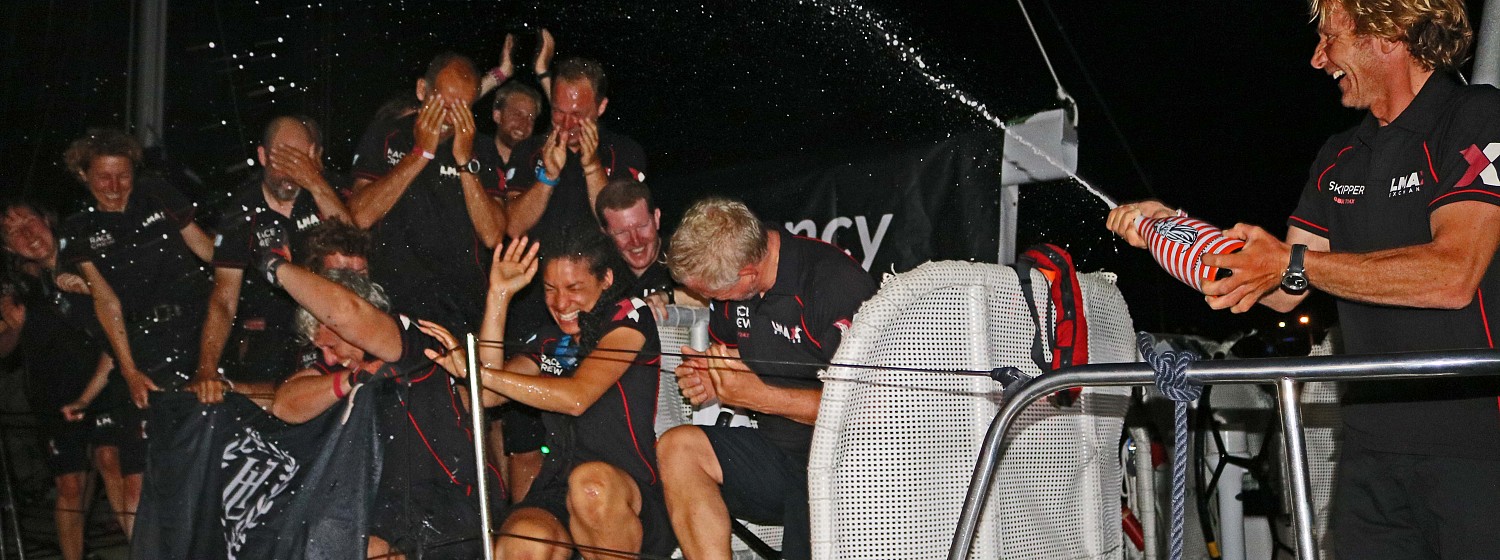Race Director's Report
Race 6: Hobart to Airlie Beach, the Whitsundays
15 January 2016
The Race Start was conducted by officials from the Royal
Tasmanian Yacht Club, the finishing partners to the CYCA for the Sydney to
Hobart Race. From my vantage point in
the starter’s box it was a very close start with many of the yachts hitting the
start line at full speed. The Derwent River is known for being a tricky place
to race with fickle winds and currents. Qingdao
hit the line first but the skipper with the most experience on the Derwent, Wendy
Tuck took an early lead. In fact the race out of the river and around Tasman
Island proved to be extremely fast. This
speed was a theme continued throughout the entire race.
The crews were now shaping up for their third crossing of
the notorious Bass Strait. The conditions were nothing short of sublime with a
perfect wind angle that allowed very fast downwind sailing for the entire
fleet. The scoring gate was purposefully
placed north of Bass Strait and way out to the east, far from the direct route
or rhumb line route. To go for it would
be a bit of a gamble. As it was LMAX Exchange and GREAT Britain did go for it
with GREAT Britain just pipping LMAX Exchange to the 3 points. They then had a titanic
struggle back toward the coast to re-join the rest of the fleet. A remarkable effort as they indeed pulled it
off against the odds, gaining the extra points but also not losing contention
with the rest of the fleet. The other yachts who focussed on the rhumb line
ultimately paying the price of staying in the adverse East Australian Current
too long. Many tried to dodge it by
going inshore but ultimately it was not enough.
Mission Performance whilst lying in a strong fifth place
responded to the distress call of another yacht which was not involved in the
Clipper Race. They selflessly abandoned
their own race to give assistance. Crew member Gavin Reid successfully rescuing
a crew man stuck for 10 hours up the mast of the other yacht. For this they were awarded 11 hours and 38
minutes of redress, but this was not enough for them to avoid coming in twelfth
place. In recognition of the fact that
they had different wind than the rest of the fleet the Race Committee increased
their total for the race to 8 points, as if they had come fifth.
It now looked like the leaders of the fleet were going to
arrive a full three days early into Airlie Beach. Only 42 seconds separated LMAX Exchange from
second placed GREAT Britain. It just goes to show that one of the key
ingredients to success in this closely matched fleet is the need to make fewer
mistakes that your rival competitors.
This was one of the fastest and most exciting races I have
seen in all of the editions of the Race and to arrive into Airlie beach and all
it has to offer was the icing on the cake.
